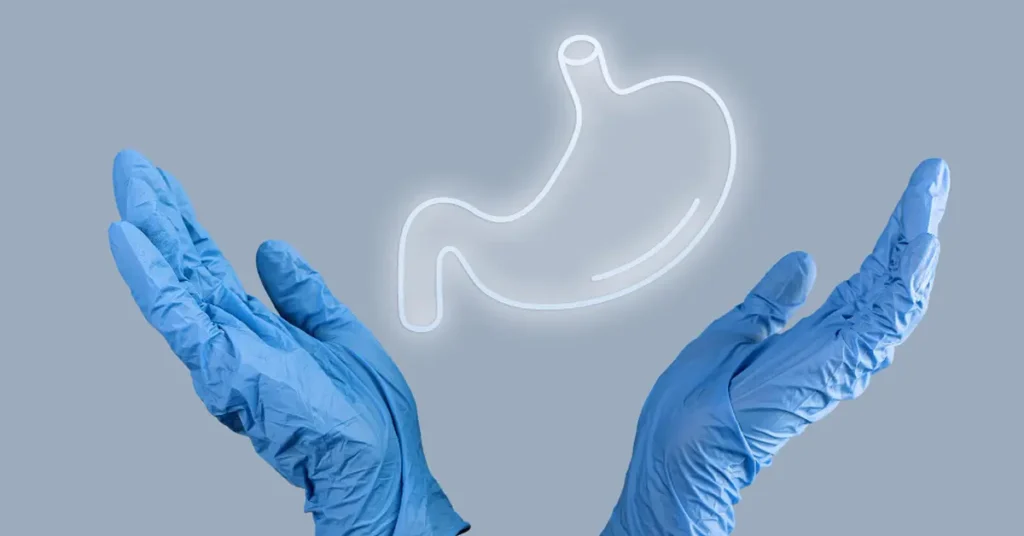Are you experiencing persistent digestive issues that just won’t go away?
You’re not alone. Inflammatory Bowel Disease (IBD) affects millions worldwide, including a growing number of people in India. While often confused with Irritable Bowel Syndrome (IBS), IBD is a chronic, more serious condition involving inflammation of the digestive tract. Early diagnosis and treatment are crucial to managing IBD and preventing severe complications.
Many people live for years with undiagnosed IBD, dismissing their symptoms as “just a sensitive stomach” or common indigestion. However, recognizing the early warning signs can make a significant difference in your quality of life.
What is Inflammatory Bowel Disease (IBD)?
Inflammatory Bowel Disease (IBD) is an umbrella term for a group of chronic inflammatory conditions that affect the digestive (gastrointestinal) tract. Unlike Irritable Bowel Syndrome (IBS), which is a “functional” disorder with symptoms but no visible inflammation or damage, IBD involves actual inflammation and damage to the lining of the intestines.
The two main types of IBD are:
Crohn’s Disease: This can affect any part of the gastrointestinal tract, from the mouth to the anus. The inflammation can involve deeper layers of the bowel wall and may appear in patches, with healthy areas in between (often called “skip lesions”).
Ulcerative Colitis (UC): This primarily affects the large intestine (colon) and rectum. The inflammation is typically continuous and only affects the innermost lining (mucosa) of the bowel wall.
10 Early Warning Signs of IBD You Should Never Ignore
Persistent Diarrhea
This is often one of the most common and earliest indicators. If you’re experiencing frequent, loose stools, especially if they last for more than a few weeks and aren’t linked to a specific infection or dietary change, it’s time to pay attention. In IBD, inflammation in the intestines can disrupt the normal absorption of water, leading to chronic diarrhea.
Abdominal Pain and Cramping
Recurrent or chronic pain in your abdomen, ranging from mild discomfort to severe cramping, is a red flag. This pain can be localized or widespread and might be accompanied by bloating. It’s often a result of the inflammation and irritation within the bowel walls.
Blood in Your Stool
Seeing blood in your stool whether bright red on toilet paper, mixed with stool, or dark and tarry is never normal and warrants immediate medical attention. This can indicate inflammation and ulceration in the digestive tract, a hallmark of IBD, particularly Ulcerative Colitis.
Unexplained Weight Loss
Losing weight without trying, especially when accompanied by other digestive symptoms, can be a sign of IBD. Inflammation can impair your body’s ability to absorb nutrients from food, leading to malnutrition and subsequent weight loss.
Fatigue
Chronic and debilitating fatigue that isn’t relieved by rest is a common and often overlooked symptom. This exhaustion can be due to a combination of factors, including ongoing inflammation, nutrient deficiencies (like iron-deficiency anemia), and the body constantly fighting inflammation.
Reduced Appetite
Inflammation and discomfort in the gut can significantly reduce your desire to eat. If you find yourself consistently avoiding meals or having a diminished appetite, it could be a subtle sign that something more is going on.
Fever
Low-grade, persistent fever can indicate active inflammation in your body. While fevers can have many causes, a recurring fever alongside other digestive symptoms should prompt a conversation with your doctor.
Nausea and Vomiting
While not as common as diarrhea or abdominal pain, some individuals with IBD may experience regular nausea and vomiting, particularly if inflammation affects the upper digestive tract or leads to blockages.
Joint Pain (Arthritis)
Surprisingly, IBD can affect areas outside the digestive system. Joint pain and swelling (arthritis) are common extra-intestinal manifestations of IBD. If you have unexplained joint issues alongside digestive symptoms, consider IBD as a possibility.
Skin Issues or Eye Inflammation
Less common but significant, IBD can manifest with skin conditions like erythema nodosum (red, tender bumps, usually on the shins) or pyoderma gangrenosum (painful ulcers). Eye inflammation, such as uveitis, can also occur. These are systemic signs that inflammation is affecting your entire body.
Why Early IBD Diagnosis Matters
In a diverse urban setting like Chicago, many individuals face challenges in recognizing the signs of Inflammatory Bowel Disease (IBD) and accessing timely care. Factors such as cultural stigma, lack of awareness, or limited healthcare access can delay diagnosis often until the disease has significantly progressed. However, early diagnosis plays a critical role in managing IBD effectively.
It allows for better symptom control, improved daily quality of life, and helps reduce the risk of serious complications such as intestinal strictures, fistulas, or even colorectal cancer. Early intervention also enables healthcare providers to tailor treatment plans more precisely whether through targeted medications, nutritional strategies, or lifestyle modifications leading to more successful long-term outcomes.
Your Gut Is Talking. It’s Time to Listen.
Living with undiagnosed IBD can silently erode your health. But with the right care, you can manage symptoms and regain control of your life. GI Solutions of Chicago is here to help from diagnosis through long-term disease management.
We believe in treating more than just the symptoms. Our board-certified gastroenterologists use cutting-edge diagnostics, individualized care plans, and holistic support from nutrition guidance to advanced therapies to help you live a healthier, more comfortable life.
Don’t wait for your symptoms to take control. Take the first step toward lasting relief with GI Solutions.
📞 Call us today at (773) 631-2728
We’re here to support you, every step of the way.


